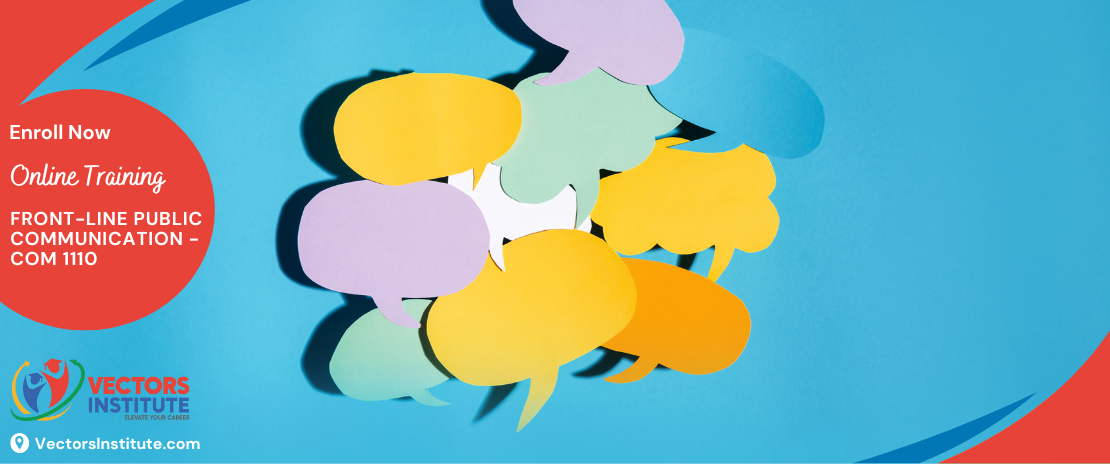Front-line Public Communication - COM 1110
 Front-line Public Communication - COM 1110
Front-line Public Communication - COM 1110
Training Overview
Effective communication is a crucial aspect of any nonprofit organization's success. Front-line public communication involves engaging with stakeholders, donors, volunteers, and community members to convey a message, provide information, and build relationships. Nonprofit organizations must have effective communication strategies to foster trust, build credibility, and maintain positive relationships with stakeholders. This training program aims to equip nonprofit organizations' front-line staff with the necessary communication skills to effectively engage with stakeholders. The training will cover various aspects of public communication, including verbal and nonverbal communication, active listening, and compelling message delivery.
The training course will combine lectures with case studies, role-playing games, and group conversations. The system will be very interactive, giving attendees the chance to work on their communication skills and get input from their peers.
Why should you attend?
This training course aims to improve participants' verbal and nonverbal conversation abilities, active listening, and message delivery.
Building solid relationships with stakeholders, such as donors, volunteers, and community members, depends on effective communication.
Effective communication is vital to achieving the mission and goals of a nonprofit organization. By attending this training program and improving their communication skills, participants can contribute to the overall success of the organization.
Through role-playing exercises and group talks, participants in this training program can hone their communication skills.
Since nonprofit organizations frequently operate on tight financial margins, taking costly training courses might not be an option. Because of its affordability, this training course is available to organizations with restricted funding.
In conclusion, enrolling in the Front-line Public Communication training program is affordable, and can help individuals improve their communication abilities, forge stronger bonds with others, and increase organizational success.
Who Should Attend
- Executive Director/CEO
- Development Director
- Program Director/Manager
- Board Chair/President
- Volunteer Coordinator
- Director of Philanthropy
It is important to note that this training program is suitable for individuals with varying levels of communication experience. Whether you are new to front-line communication or have years of experience, this training program can provide valuable insights and practical skills to enhance your communication effectiveness.
Additionally, this training program can be customized to meet the specific needs of your organization. For example, if your organization works with stakeholders from diverse cultural backgrounds, the training program can be tailored to include more content on cross-cultural communication. Overall, this training program is suitable for anyone who wants to improve their communication skills and contribute to the success of their nonprofit organization.
Training Objective
- Develop Effective Communication Skills
- Enhance Stakeholder Engagement
- Improve Conflict Resolution Skills
- Enhance Cross-Cultural Communication
- Prepare for Crisis Communication
- Evaluate Communication Effectiveness
Program outline
- Verbal Communication
- Nonverbal Communication
- Active Listening
- Understanding Stakeholder Needs
- Message Delivery
- Conflict Resolution
- Cross-Cultural Communication
- Communication in Crisis Situations
Management
Duration of the Certificate Program: 2 hours of training
Certification of Participants: Yes
Assessment: Yes
Attendance: Mandatory
Format Online real-time workshop
